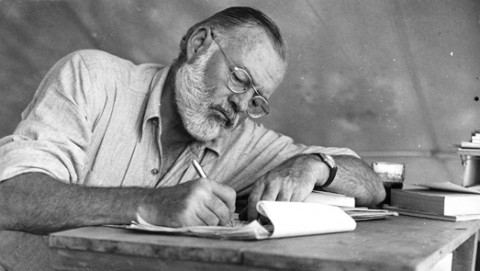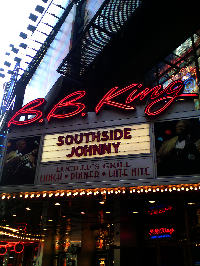As a character study it seems to work –
maybe everyone knows an aunt or a cousin who made these choices in life and
ended up stuck, trapped in a loveless dead end of a life. Anyway, it goes down
well in concert, and I’ve had all kinds of kind comments about it online, so it
shows how people love a little tale of misery in their lives now and then.
The origin of this one is a mystery to me –
the guitar figure right at the start was the first part. I remember sitting on
the edge of the bed playing this over and over until it was properly under my
fingers. As for inspiration, I think the work of John McGahern may have rubbed
off on me more than I thought – there seems to be a touch of the Amongst Women
about it, that sense of being stranded alone and unloved in a rural landscape.
MUSICIANS: Anthony Toner – guitars and vocals; Peter McKinney – drums; Clive Culbertson – bass; John McCullough – drums; Neil Martin - cello
The Road to Fivemiletown:
She was the youngest of four daughters,
and she married way too fast,
in the days when vows were iron -
and you had to make them last.
But her father was a bruiser,
and he bruised them twice a week.
She couldn’t live the life her mother had,
and turn the other cheek.
So when she turned sixteen, she started
counting off the days
- til she could find herself a husband, and finally get
away.
He was a farmer with big farmer’s hands,
and she met him at a dance.
She set her sights upon him,
and he never stood a chance.
She thought the price of being choosy
was to live upon the shelf,
and she thought he’d do the job
as well as anybody else.
And when they both stood at the altar, he said he’d never
let her down -
he had a farm and forty acres, either side of the road to
Fivemiletown.
That first year the river burst its banks,
and half the countryside was drowned.
all the food that he had planted
lay and rotted in the ground.
He’d come home at night exhausted,
and lie dead between the sheets,
and she’d lie all night and listen to
the roaring of the beasts,
and it was dark - as dark as being lost and never found.
You wouldn’t even know your eyes were closed or open on the
road to Fivemiletown.
Once upon a time she thought the world
would be hers to wrap her arms around.
Now she makes the bed, and lies back down.
She drew a disappearing heart, when there was no-one else
around,
on a steamed-up kitchen window - looking out on the road to
Fivemiletown.

























